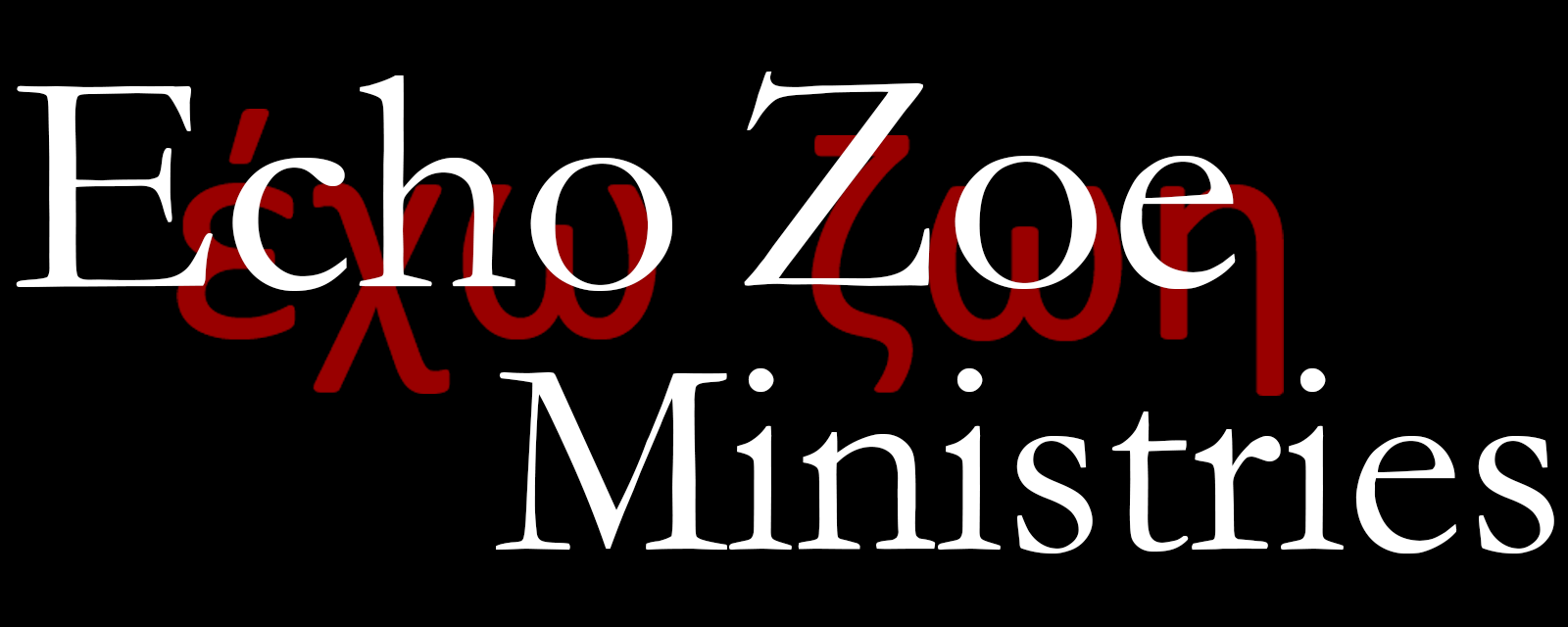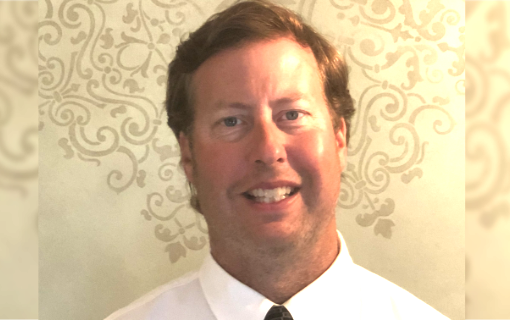Allen Nelson returns for this third episode of Echo Zoe Radio. Allen is pastor of Perryville Second Baptist Church in Perryville, Arkansas. He’s also the author of “Before the Throne: Reflections on God’s Holiness,”and “From Death to Life: How Salvation Works,” which were the topics of his first two episodes with us. He also writes for Things Above, a Christian group blog dedicated to Missions, Evangelism, Theology, and Sports. In addition to Things Above, he has some articles up at Founders Ministries as well. This time around, we discuss the Effectual Calling.
Podcast: Play in new window | Download (Duration: 1:01:44 — 114.4MB)
Subscribe: RSS | Subscribe to Echo Zoe Radio
Outline of the Discussion
- Effectual Calling is an important topic, but many Christians don’t get deep enough into theology to understand it.
- Every aspect of life, be it a vocation/career, a hobby or other interest, politics, or worldview will have a specialized vocabulary to it. It’s important that if we take our faith seriously we take the time to understand the vocabulary of theology.
- To understand the Effectual Call, we must first understand the General Call.
- We take the Gospel to the Nations and offer it, no strings attached, to all in order to be saved. We don’t concern ourselves over whether the people we take it to are Elect or not. It’s an external call to look to Christ and be saved.
- The Effectual Call goes out to bring those whom God has elected in eternity past to be saved, and has the effect of bringing the sinner to salvation.
- From the 1689 London Baptist Confession, Chapter 10:
Those whom God hath predestinated unto life, He is pleased in His appointed, and accepted time, effectually to call, by His Word and Spirit, out of that state of sin and death in which they are by nature, to grace and salvation by Jesus Christ; enlightening their minds spiritually and savingly to understand the things of God; taking away their heart of stone, and giving to them a heart of flesh; renewing their wills, and by His almighty power determining them to that which is good, and effectually drawing them to Jesus Christ; yet so as they come most freely, being made willing by His grace.
- From the 1647 Westminster Confession, Chapter 10:
All those whom God hath predestinated unto life, and those only, he is pleased, in his appointed and accepted time, effectually to call, by his Word and Spirit, out of that state of sin and death, in which they are by nature, to grace and salvation, by Jesus Christ; enlightening their minds spiritually and savingly to understand the things of God, taking away their heart of stone, and giving unto them a heart of flesh; renewing their wills, and, by his almighty power, determining them to that which is good, and effectually drawing them to Jesus Christ: yet so, as they come most freely, being made willing by his grace.
- The Effectual Call is connected (theologically) to Election. (All theology is interconnected.)
- In the Effectual Call, God calls His elect in such a way they, for sure, and willingly come to Him.
- Lazarus is an illustration of the Effectual Call. Jesus says “Lazarus, come forth!” and Lazarus walked out of the grave.
- Without the Effectual Call, people always respond to the General Call with rejection and rebellion.
- We participate in the General (external) Call, but the Effectual (internal) Call is entirely a work of the Spirit.
- We are not justified by the Effectual Call, we are justified by faith, which is a gift and result of the Effectual Call.
- It is the Pelagian view that an unregenerate sinner can respond positively to Christ (the General Call) whenever they decide it’s time to embrace the grace.
- The Reformed view of salvation says that the sinner cannot respond to the Gospel is if they are effectually drawn, whereas the non-reformed (Arminian/Semi-Pelagian) view says that God gives the grace, but the sinner has to decide if he’s going to activate it or not.
- An Arminian analogy says that the sinner is drowning and the General Call is a life preserver they must grab. However, the analogy would be more Biblical if the drowning man had a machine gun shooting back at those trying to save him. He doesn’t want it!
- It’s no more in the nature of a sinner to choose grace and salvation than it is in the nature of a child to choose vegetables over candy, or a buzzard to choose a caesar salad over a possum carcass.
- Why does this matter? Yes. First, we want our theology to be in line with the scriptures. Second, it affects our understanding of the Holy Spirit.
- When the Scriptures say that Jesus will draw people to Himself, the word “draw” is the same word that describes how one would draw water from a well (which is to say that the water has no choice in the matter.)
- Salvation is monergistic (a work of God alone,) not synergistic (a work of both the Spirit and the sinner together.)
- We are commanded to preach the Gospel, but we can do that more Biblically if we properly understand how the Spirit works in salvation.
- Our understanding of the Effectual Call has ramifications on how we understand the ordinances (Baptism & Communion.)
- We can know that we’ve been saved.
- In discussing knowing we’re saved, we’re talking about Assurance of Salvation.
Scriptures Referenced
- Isaiah 45:22
- Genesis 1:1b
- Romans 8:30
- John 6:44
- John 12:32
- 1 John (entire), 3:14, 5:1
- John 10:27
Additional Resources
- Bunyan, Belief, and the New Birth: Why Regeneration Precedes Faith – Allen Nelson
- Of Effectual Calling – Eric Smith
- Effectual Calling – Charles Spurgeon
- The Doctrine of God’s Effectual Call – John MacArthur (Sermon)
- The Gospel Call & The Effectual Call – Anthony A. Hoekema
- Chapter X – 1689 London Baptist Confession of Faith
- Chapter X – Westminster Confession of Faith
Related Episodes
- Bob DeWaay: Open Theism and the Doctrine of Election
- Phil Johnson: The Doctrines of Grace
- Dr. James White: Sola Gratia & Sovereign Grace
- Bob DeWaay: The Works of the Holy Spirit
- Dan Phillips: The World-Tilting Gospel
- Dan Phillips: What Faith Is and Does
- Allen Nelson: How Salvation Works
- Dr. R. Scott Clark: The Canons of Dort
- Christopher Drew: Assurance of Salvation




